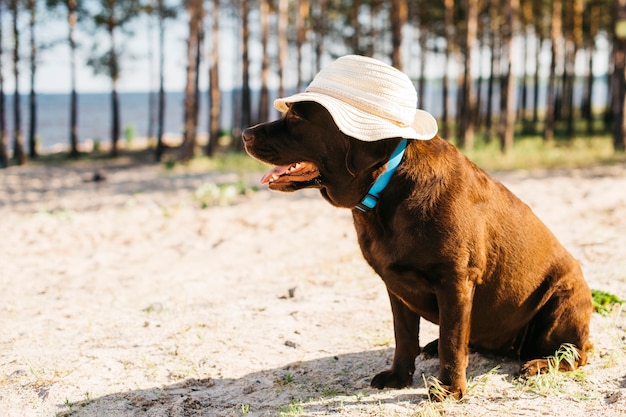Keeping Pets Safe and Comfortable in Davenport’s Summer Heat

Keeping Pets Safe and Comfortable in Davenport’s Summer Heat
Summer in Davenport, FL means long, sunny days, high humidity, and plenty of opportunities for outdoor fun with your pets. However, with the arrival of intense heat and unpredictable weather, pet owners often wonder how to keep their furry family members safe, healthy, and comfortable. At St. Charles Veterinary Hospital, located at 39873 U.S. 27, Davenport, FL 33897, our veterinary team understands the unique challenges that Florida summers can bring for pets and their families. We are committed to providing comprehensive summer pet care tips and heat safety for pets, helping you prevent heat-related health issues, manage common seasonal hazards, and ensure your pet’s well-being all season long.
In this guide, you will learn how to recognize the warning signs of heat stress, why pets are more susceptible to summer dangers, how to keep your companions cool and comfortable, and when to schedule a veterinary appointment for expert care. If you are looking for quality veterinary services in Davenport or searching for a “vet near me” you can trust, our team is here to support you and your pet every step of the way.
Recognizing Signs of Heat Stress and Common Summer Hazards in Pets
Pets are especially vulnerable to the intense heat and humidity that define summers in Davenport and surrounding communities. Recognizing the early signs of heat stress and other seasonal dangers can make all the difference in protecting your pet’s health.
Symptoms of Heat Stress and Heatstroke
Early symptoms of heat stress in pets include excessive panting, increased drooling, restlessness, and seeking cooler areas or shade. As heat exposure continues, warning signs can advance to rapid breathing, red or pale gums, vomiting, diarrhea, weakness, confusion, and collapse. In severe cases, pets may experience seizures or become unresponsive, which are life-threatening emergencies.
Other Summer Risks for Pets
In addition to heat stress, pets in Davenport face risks from hot pavement, sunburn, dehydration, and sudden summer storms. Hot surfaces like sidewalks and driveways can burn sensitive paw pads, while direct sun exposure increases the likelihood of sunburn, especially in pets with light-colored or thin coats. Dehydration may develop quickly if pets do not have constant access to fresh water, and thunderstorms can trigger anxiety or escape attempts.
Being aware of these signs and risks allows you to take swift action if your pet begins to show symptoms, keeping your companion safe and comfortable throughout the summer months.
Why Summer Heat and Humidity Affect Pets in Davenport
Florida’s summer climate poses unique challenges for pets, especially in regions like Davenport where high humidity can make temperatures feel even hotter. Unlike humans, pets have limited ways to cool themselves. Dogs primarily regulate body temperature through panting and only sweat minimally through their paw pads, while cats rely on grooming and seeking cool surfaces.
Certain pets are at increased risk for heat-related illness. Brachycephalic breeds such as Bulldogs, Pugs, and Persian cats have shorter snouts that make it harder to breathe efficiently, limiting their ability to cool down. Young, elderly, overweight, and chronically ill animals are also more vulnerable. Long-haired pets or those with dark coats tend to absorb and retain more heat, increasing the likelihood of overheating.
In addition to physical factors, local phenomena such as afternoon rain showers and thunderstorms can create sudden changes in temperature and humidity, further stressing your pet. Understanding these contributors to heat safety for pets in Davenport can empower you to prevent problems before they start and make better decisions about outdoor activities, grooming, and hydration.
Veterinary Care and Management: How St. Charles Veterinary Hospital Supports Your Pet
When summer brings extreme temperatures or your pet begins to show signs of heat stress, a prompt response and professional veterinary care become critical. At St. Charles Veterinary Hospital, our veterinarians offer expertise in diagnosing and managing heat-related concerns, along with a full range of preventive services to keep your pet thriving throughout the summer.
What to Expect from Veterinary Care
If your pet is experiencing symptoms of heat stress, our veterinary professionals will perform a comprehensive physical examination. This includes checking vital signs, hydration status, and assessing for complications such as heatstroke or dehydration. Treatment approaches involve cooling your pet with water or cooling blankets, administering intravenous fluids to restore hydration and electrolyte balance, and monitoring for secondary complications such as organ dysfunction. In some cases, additional diagnostics such as blood work or imaging may be recommended.
For pets with chronic health conditions or those at higher risk due to age or breed, we may suggest a tailored summer care plan. This can include regular wellness exams, adjustments to medications, and specific recommendations for managing heat exposure. Our focus is always on providing the highest standard of veterinary services in Davenport, ensuring your pet’s safety and comfort during the challenging summer months.
Ongoing Preventive Guidance
Our veterinary team is here to answer your questions about heat safety for pets and to help you create a personalized summer care plan. You can schedule an appointment by calling (863) 438-6600 to discuss your pet’s unique needs and get recommendations for sun safety, hydration, parasite prevention, and more.
Practical Prevention and Home Care Tips for Summer Pet Safety
While veterinary care is essential for heat-related emergencies, proactive home care can greatly reduce your pet’s risk of summer hazards. By following these summer pet care tips, you can help your pet enjoy a safe and happy season in Davenport.
Keeping Pets Cool and Hydrated
Ensuring your pet has constant access to clean, cool water is one of the most effective ways to prevent dehydration and overheating. Place water bowls in several locations inside your home and outside in shaded areas. During walks or outdoor play, carry a portable water bottle and offer frequent drinks. Scheduling outdoor activities during early morning or late evening hours, when temperatures are lower, can also make a significant difference in your pet’s comfort.
Providing Shade and Safe Shelter
Encourage your pet to rest in shaded, well-ventilated spaces. Indoors, use fans or air conditioning to maintain a comfortable environment. Outdoors, provide shelters or umbrellas that block direct sunlight. Never leave pets unattended in vehicles, even for a few minutes; temperatures can escalate rapidly, putting your pet’s life in immediate danger.
Protecting Paws and Skin
Hot pavement can cause painful burns to your pet’s paw pads. Test surfaces with your hand before allowing your pet to walk, and opt for grassy areas whenever possible. For pets with thin or light-colored coats, consult with our veterinary professionals about safe sunscreen options designed for animals. Keeping up with grooming helps prevent mats and improves air circulation to the skin, but avoid shaving double-coated breeds, as their fur offers natural insulation against both heat and sun.
Managing Seasonal Parasites and Thunderstorm Anxiety
Summer in Davenport also brings an increase in fleas, ticks, and mosquitoes. Continue your pet’s parasite prevention regimen as recommended by your veterinarian. For pets with noise sensitivity or storm anxiety, create a safe, quiet space indoors and consult our veterinarians about calming strategies, which may include pheromone diffusers or behavior modification techniques.
By incorporating these summer pet care tips into your daily routine, you help safeguard your pet against common seasonal risks while enhancing their overall well-being.
When to Seek Veterinary Care for Heat-Related Concerns
Knowing when to seek professional help can mean the difference between a minor issue and a life-threatening emergency. You should contact St. Charles Veterinary Hospital immediately if your pet displays symptoms such as persistent panting, excessive drooling, vomiting, diarrhea, unsteady movement, confusion, or collapse. Rapid intervention is crucial in cases of suspected heatstroke, dehydration, or burns from hot surfaces.
Additionally, schedule a veterinary appointment if your pet is part of a higher-risk group, such as senior pets, brachycephalic breeds, or those with chronic health conditions. Preventive wellness exams during the summer allow our team to assess your pet’s overall health, update parasite prevention, and provide tailored recommendations for heat safety for pets in Davenport.
Our veterinarians are always available to answer your questions and provide guidance on your pet’s summer health. If you are searching for a “quality vet near me” who understands the specific challenges of Florida summers, you can trust St. Charles Veterinary Hospital to provide the expertise, compassion, and support your family deserves.
Keeping Your Pet Safe This Summer: Compassionate Care from St. Charles Veterinary Hospital
Florida’s summer heat poses genuine risks to our beloved pets, but with the right knowledge, vigilance, and support from your local veterinary team, you can keep your companion safe, happy, and comfortable all season long. By recognizing the early signs of heat stress, understanding the unique effects of Davenport’s climate, and following our practical summer pet care tips, you are taking important steps toward protecting your pet’s health.
If you have concerns about heat safety for pets, notice any warning signs, or simply want to discuss a personalized preventive care plan, we encourage you to schedule an appointment with our veterinarians at 39873 U.S. 27, Davenport, FL 33897. For trusted guidance, comprehensive veterinary services in Davenport, and the reassurance that comes with choosing the best veterinarian near me for your family, call (863) 438-6600 today. Our veterinary professionals are honored to be your partners in pet health, offering expertise and compassion for every season.
If your pet is experiencing a medical emergency, seek immediate veterinary attention. The information in this article is provided for educational purposes only; please consult our veterinarians for advice tailored to your pet’s specific needs.
For more resources on seasonal pet safety, visit the American Veterinary Medical Association’s summer pet care guidelines at AVMA Summer Pet Safety.


















